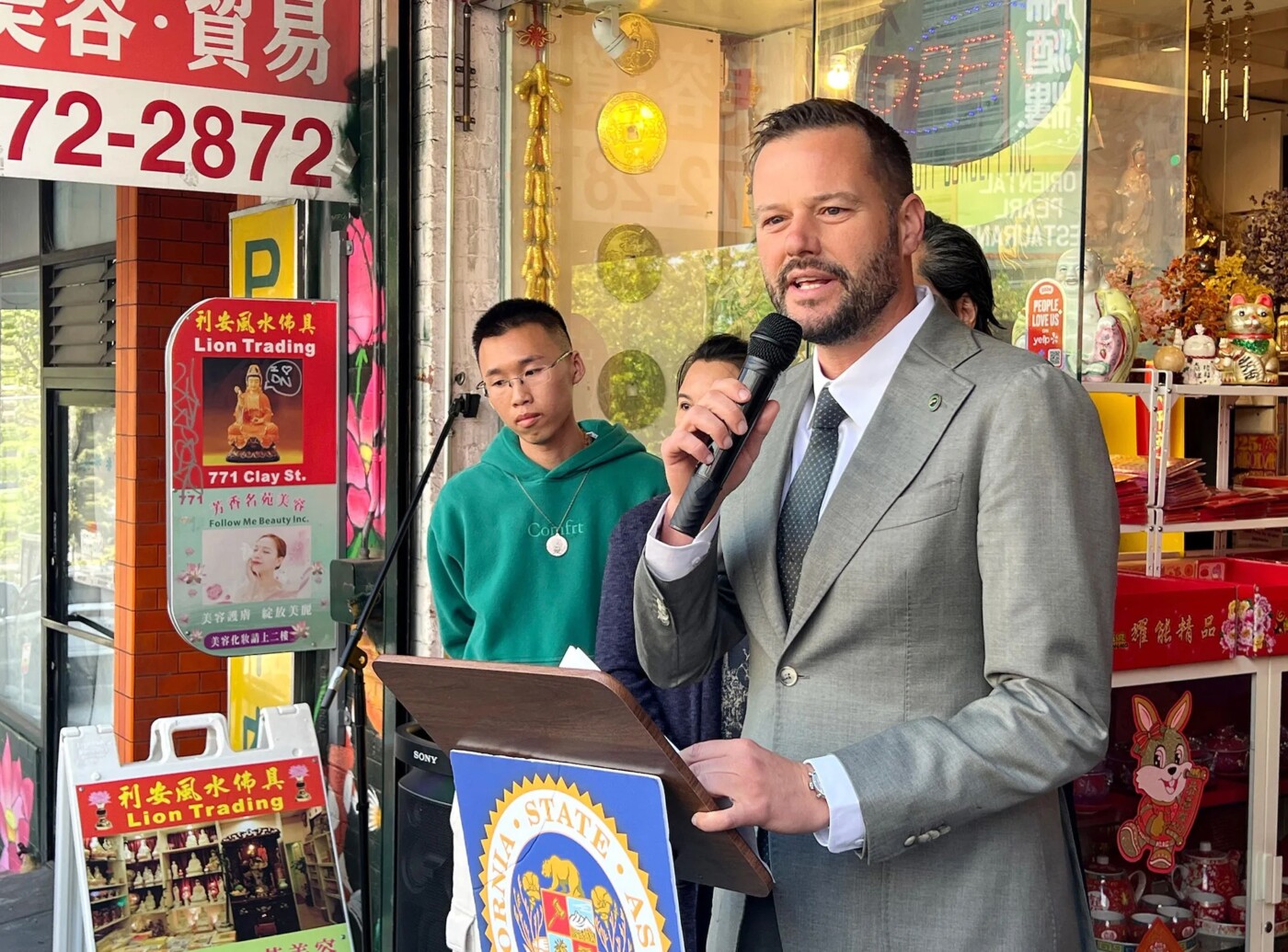While cargo ships from China sat idle in the Bay awaiting customs payments, state Assemblymember Matt Haney, D-San Francisco, stood with Chinatown’s business leaders Tuesday and called on President Donald Trump to end a brewing trade war.
According to Haney, family-owned businesses, many run by immigrants, are being pushed to the brink by the Trump administration’s extreme 145% tariff on Chinese imports. The tariffs have triggered price spikes on essential goods like dry noodles, teas, sauces, and traditional medicines, devastating small local shops that rely heavily on imported inventory.

“When Chinatown is hit, all of us are hit here in the city,” Haney said, standing in front of Lion Trading San Francisco, a religious product store that sells merchandise exclusively produced in China. “The ripple affects our economy, our jobs, for opportunities and recovery, and it will hit all of us.”
With up to 90% of inventory in some Chinatown stores sourced from China and Asia, Haney said, Trump’s trade war is putting one of San Francisco’s most iconic neighborhoods at risk. Haney pointed noted that the owner of the New Asia supermarket saw a 20% drop in sales after China tariffs hit.
“He’s been forced to raise prices 15% to 30% but fears that even more hikes will drive away his low-income customers, who rely on his store for affordable food,” Haney said. “Wheat flour prices have nearly doubled from $20 to $43 for a 50-pound bag thanks to these tariffs. That’s not just flour. That’s spices to specialty teas, all the things that people come here to enjoy that is unique about Chinatown.”
‘They don’t know how to survive’
Edward Siu, of the Chinatown Merchants United Association, said the businesses he represents could be hit harder than they were during the COVID-19 pandemic because the government has not provided subsidies.
“Right now, we don’t have any funding or any grant,” Siu said. “Our businesses are getting hurt during this time, between April and May. We have a lot of merchants going to China, or going to Asia, trying to order merchandise. Unfortunately, right now they cannot make any decision because they don’t know. Right now, a lot of people, a lot of merchants, have lost their direction. They don’t know how to survive.”
Siu said the cargo ships are held up in the Bay because there is uncertainty over customs, which is paid upon delivery.

Donald Luu, president of the San Francisco Chinese Chamber of Commerce, warned of layoffs and shuttered businesses if the tariffs persist.
Luu said Chinatown has about 6,500 apartment units, and two-thirds of the residents work in the neighborhood.
“They help with the tourist industry or the service industry. You know, just working in the store,” he said.
Luu said businesses are thinking about how to sustain themselves and how to maintain employment if the tariffs continue. He was also concerned about rising vacancy rates in Chinatown.
Haney said Gov. Gavin Newsom is trying to negotiate different types of trade agreements on behalf of California.
“It’s unfortunate that California is increasingly having to act like our own country, negotiating trade agreements with countries and trying to find ways to reduce the cost of these imports because our businesses, our economy, cannot survive without these imports, especially coming from Asia. I think California is especially vulnerable when it comes to ensuring access to the Asian markets and to the goods from Asia, especially from China.”
The post ‘It will hit all of us’: Chinatown merchants say tariff impacts may be worse than pandemic appeared first on Local News Matters.
